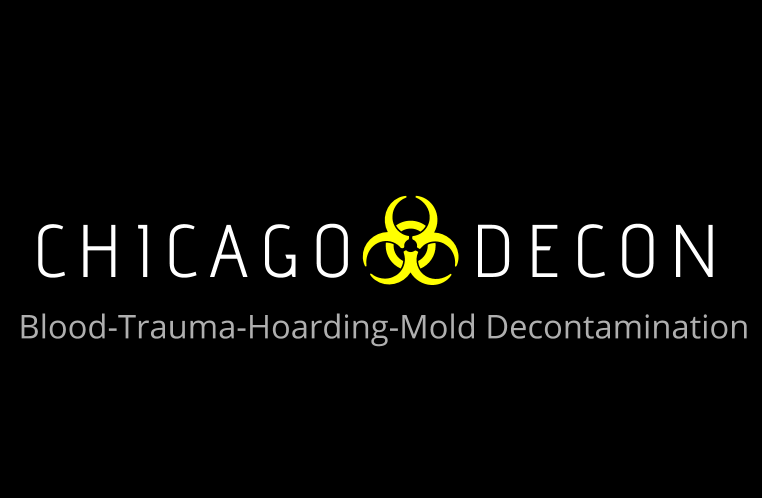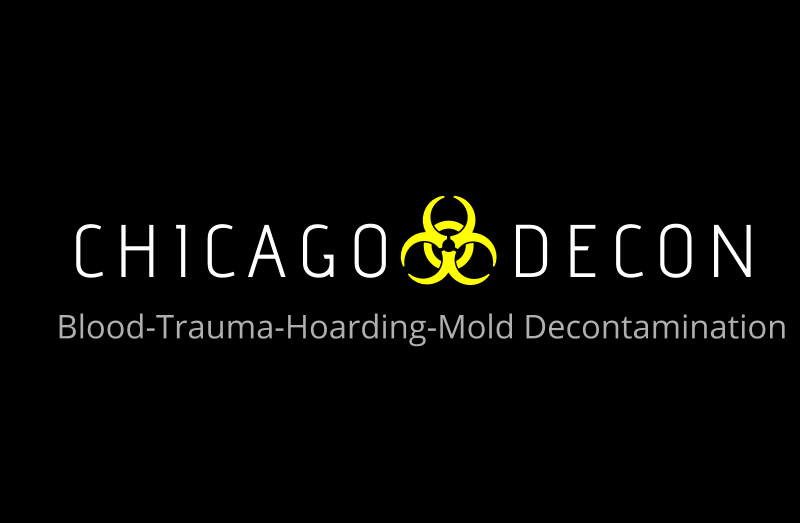Areas of Practice
Suicide, Natural, and unattended Death Cleanup
Our Chicago and Suburban crime scene cleanup services are unparalleled in the Midwest as well as in the industry. Chicago Decon LLC has earned a high reputation in our field with our sensitive services relating to homicides, accidents and other types of biohazard and medical waste cleanup and disposal. Trust Chicago Decon, LLC technicians to handle your accident, homicide or crime scene cleaning needs throughout Chicagoland and the Midwest. We are here to help families, businesses and local communities deal with the aftermath of an unforeseen events.
As part of our biohazard and medical waste disposal services, we handle the eradication of blood and other biological matter as part of our efforts to restore the scene to how it was before the accident or crime.
Chicago Decon, LLC is based in Chicago and provides state agencies and businesses with crime scene cleanup. Our methods and specialized training have set the standard in both the City of Chicago and the State of Illinois. Learn more about how we handle crime scene cleanup and the sensitive disposal of biohazard and medical waste throughout the state of Illinois.
Chicago Decon, LLC’s experienced professionals are frequently called upon for these types of biohazard cleaning services and have been since 2006. Our Chicago-based crew will remove the remnants of the crime scene and use sanitizing cleanup services to return the area to normal.
Hoarding, Gross Filth, & Pack Rat
Hoarding disorder is a persistent difficulty discarding or parting with possessions because of a perceived need to save them. A person with hoarding disorder experiences distress at the thought of getting rid of the items. Excessive accumulation of items, regardless of actual value, occurs.
Hoarding often creates such cramped living conditions that homes may be filled to capacity, with only narrow pathways winding through stacks of clutter. Countertops, sinks, stoves, desks, stairways and virtually all other surfaces are usually piled with stuff. And when there’s no more room inside, the clutter may spread to the garage, vehicles, yard and other storage facilities.
Hoarding ranges from mild to severe. In some cases, hoarding may not have much impact on your life, while in other cases it seriously affects your functioning on a daily basis.
Mold Remediation
Who should do the cleanup depends on a number of factors. One consideration is the size of the mold problem. If the moldy area is less than about 10 square feet (less than roughly a 3 ft. by 3 ft. patch), in most cases, you can handle the job yourself.
If there has been a lot of water damage, and/or mold growth covers more than 10 square feet, consult Chicago Decon LLC.
If you suspect that the heating/ventilation/air conditioning (HVAC) system may be contaminated with mold (it is part of an identified moisture problem, for instance, or there is mold near the intake to the system), consult Chicago Decon LLC before taking further action. Do not run the HVAC system if you know or suspect that it is contaminated with mold – it could spread mold throughout the building.
If the water and/or mold damage was caused by sewage or other contaminated water, then call Chicago Decon LLC who has experience cleaning and fixing buildings damaged by contaminated water.
If you have health concerns, consult a health professional before starting cleanup.
Floods and Flooding
During a flood cleanup, the indoor air quality in your home or office may appear to be the least of your problems. However, failure to remove contaminated materials and to reduce moisture and humidity can present serious long-term health risks. Standing water and wet materials are a breeding ground for microorganisms, such as viruses, bacteria, and mold. They can cause disease, trigger allergic reactions, and continue to damage materials long after the flood.
Ten Things You Should Know about Mold
Potential health effects and symptoms associated with mold exposures include allergic reactions, asthma and other respiratory complaints.
There is no practical way to eliminate all mold and mold spores in the indoor environment; the way to control indoor mold growth is to control moisture.
If mold is a problem in your home or school, you must clean up the mold and eliminate sources of moisture.
Fix the source of the water problem or leak to prevent mold growth.
Reduce indoor humidity (to 30-60%) to decrease mold growth by:
Venting bathrooms, dryers and other moisture-generating sources to the outside
Using air conditioners and de-humidifiers
Increasing ventilation
Using exhaust fans whenever cooking, dishwashing and cleaning
Clean and dry any damp or wet building materials and furnishings within 24-48 hours to prevent mold growth.
Clean mold off hard surfaces with water and detergent, and dry completely. Absorbent materials such as ceiling tiles, that are moldy, may need to be replaced.
Prevent condensation: Reduce the potential for condensation on cold surfaces (i.e., windows, piping, exterior walls, roof, or floors) by adding insulation.
In areas where there is a perpetual moisture problem, do not install carpeting (i.e., by drinking fountains, by classroom sinks, or on concrete floors with leaks or frequent condensation).
Molds can be found almost anywhere; they can grow on virtually any substance, providing moisture is present. There are molds that can grow on wood, paper, carpet, and foods.

